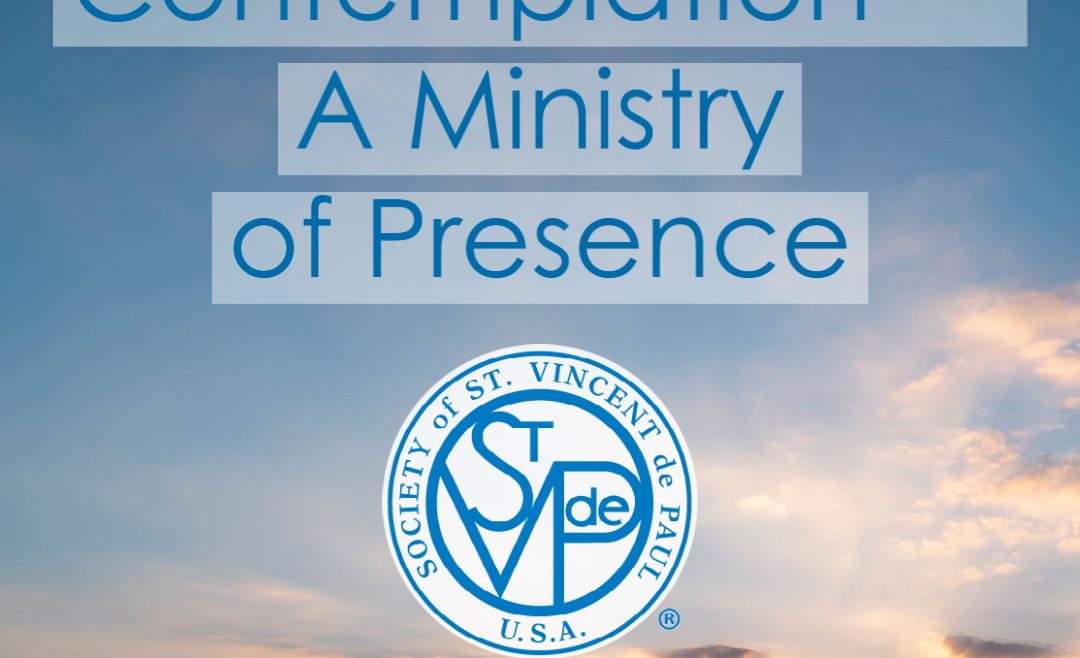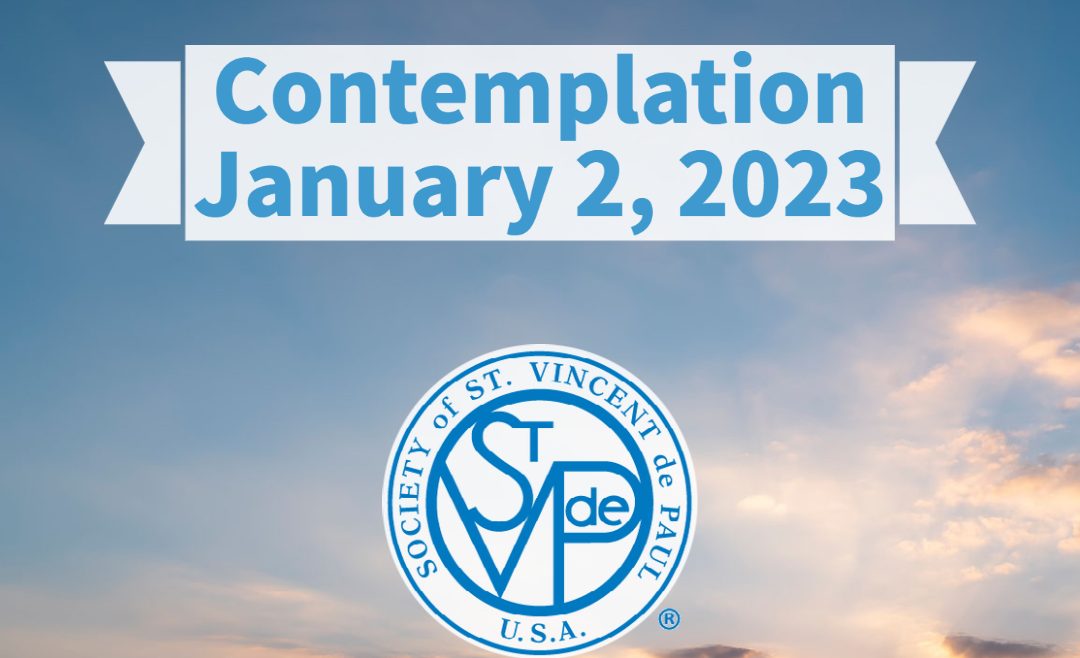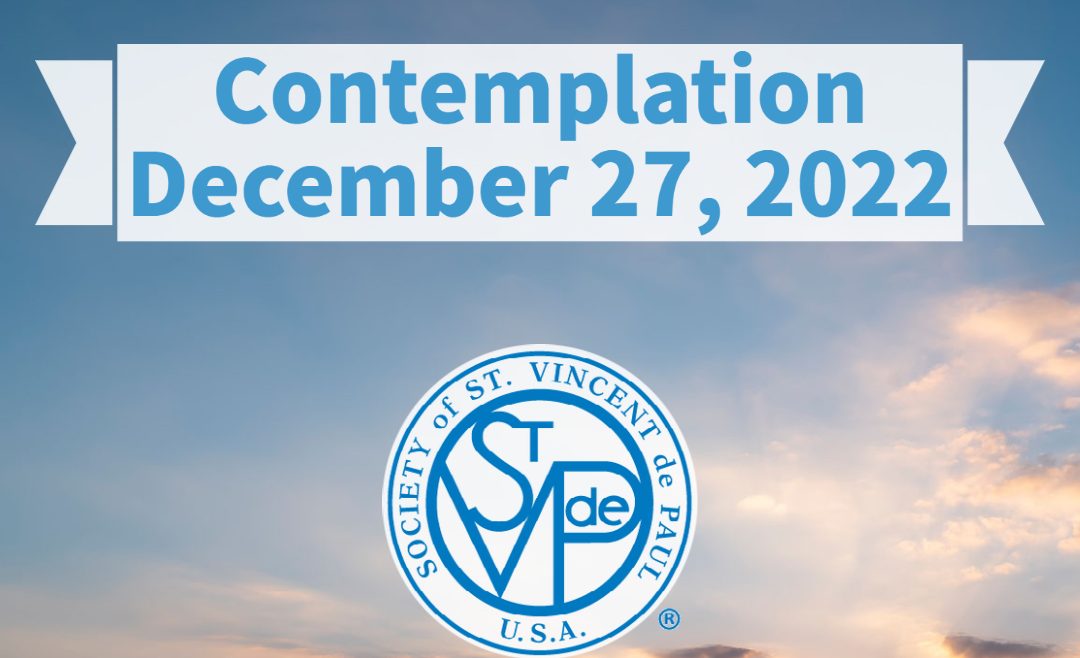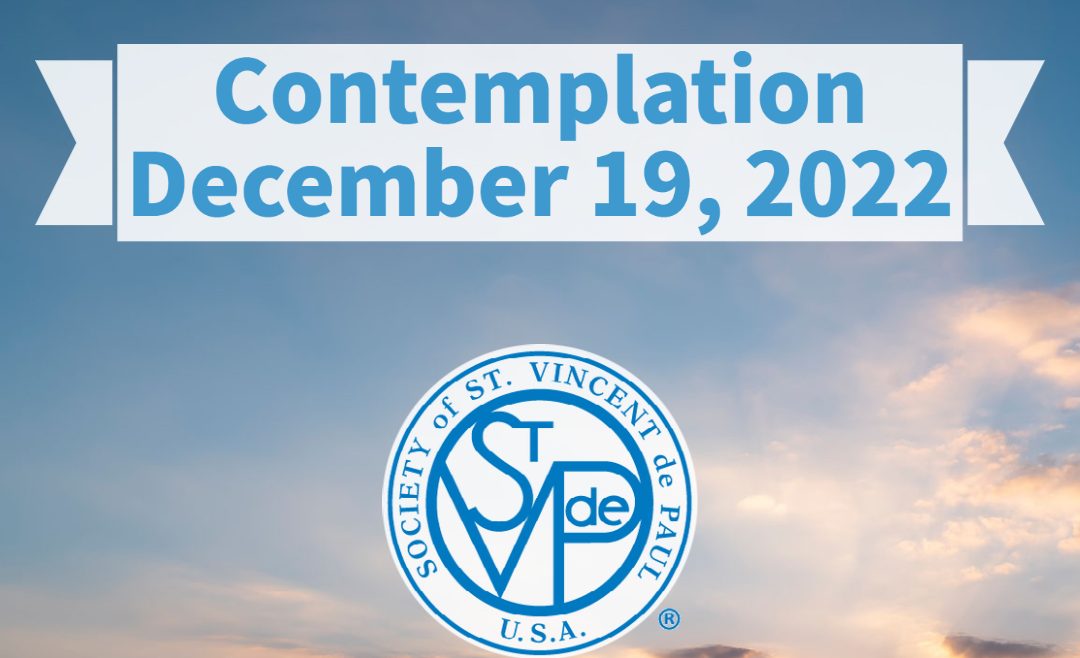The primary purpose of the Society of St. Vincent de Paul is the spiritual growth of its members. We seek, by serving the poor, to see His suffering and to grow closer to Him and welcoming the neighbor into His love. All this suffering serves a purpose in God’s plan, but that does not mean we serve in sadness!
Vincentians receive many dimensions of God’s grace as a result of our home visits, but perhaps the most important dimension is joyful grace. We are like children who have just cleaned up their rooms without being asked, racing to tell our parents what we have done! We are bursting with pride not only because know this will please our parents, but because in the course of our cleaning we saw for ourselves that it was good.
Similarly, we have sat in the pew and listened to the words of Gospel of Matthew many times, and many times we have nodded along as Christ explains the Judgment of Nations. It all makes sense – serve the least among us, feed the hungry, welcome the stranger…probably most of us can recite it by heart. But as Army General Norman Schwartzkopf once said, “You almost always know the right thing to do. The hard part is doing it.”
And so we are filled with joy as we fulfill God’s will through our works. But our hearts are doubly filled with this joyful grace of God as we realize that we have encountered Christ Himself – exactly as he told us we would.
We go to the homes of the poor and, as Vincent explains, we “find God there!” [CCD IX:199] This is a source of wonder not because it is so surprising, but precisely because it is not. Christ’s word is fulfilled through our actions and our hearts are filled with joy!
When we think about finding new members to join with us in our Conferences, or to form new Conferences, extending this worldwide network of charity, no “recruiting pitch” should be necessary. We have been in the presence of a loving God and have in turn shared His love with others. This joyful grace fills us to overflowing – why would we not want that for all of our friends? Why would we not invite them to share in our joy? Why would we keep it to ourselves?
Contemplate
Do I hesitate to share this great joy of God’s grace with my friends?










